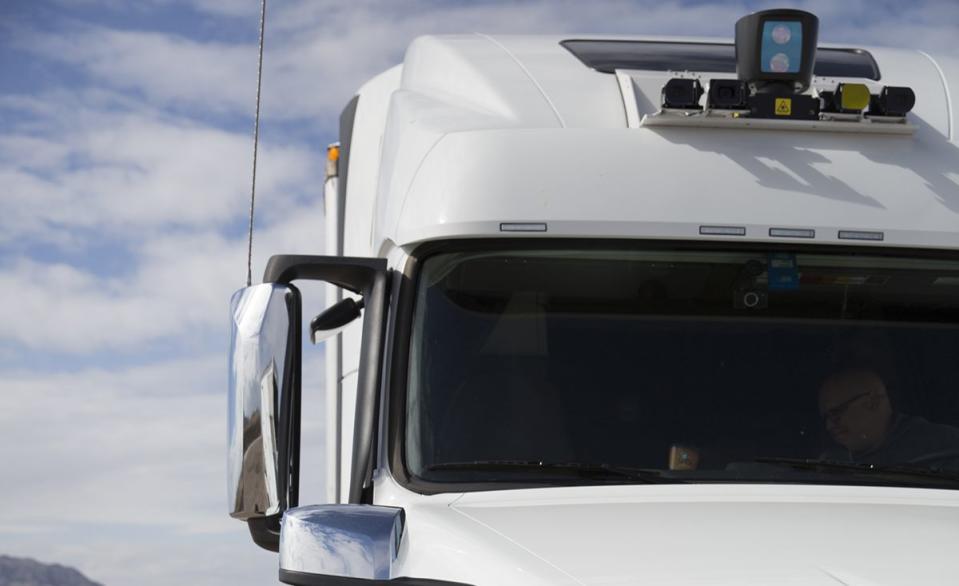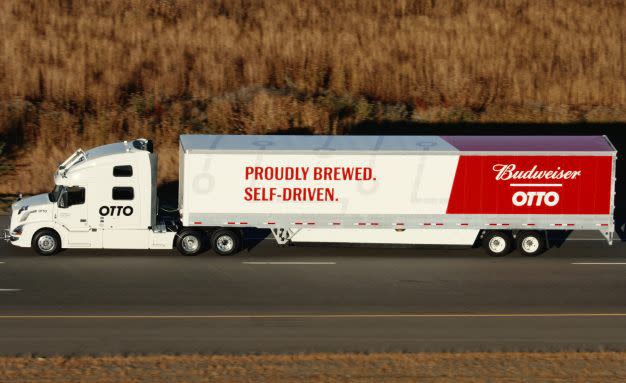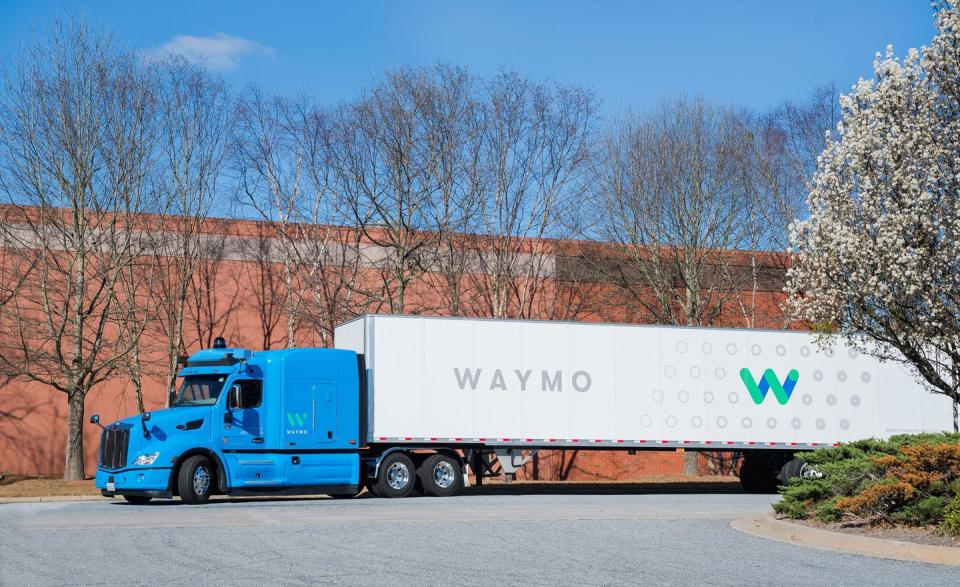Uber Shutters Its Self-Driving-Truck Division

Uber’s dream of self-driving trucks is dead-at least for now.
The ride-hailing company’s Advanced Technologies Group said Monday that it will shutter its self-driving trucks division so it can concentrate its efforts in the automated-driving realm on cars.
The move is perplexing. Transportation efforts widely consider trucking to be one of the first practical applications of self-driving technology, one that could provide billions in economic benefits to trucking operators. Separately, Uber’s self-driving-car program has frayed since a fatal crash in March.

But after a four-month hiatus, Uber’s self-driving cars hit the road for the first time last week in Pittsburgh, albeit only in manual mode gathering sensor data. No automated testing is taking place. Now comes its decision to rally behind cars.
“We’ve decided to stop development on our self-driving-truck program and move forward exclusively with cars,” said Eric Meyhofer, head of Uber’s Advanced Technologies Group. “We recently took the important step of returning to public roads in Pittsburgh, and as we look to continue that momentum, we believe having our entire team’s energy and expertise focused on this effort is the best path forward.”
Uber said some employees from the self-driving truck unit will be offered positions on the self-driving-car program, but others may face relocation or layoffs. The company declined Tuesday to say how many employees are affected.

Its efforts to launch self-driving cars have been largely on hiatus since March, when one of the company’s self-driving vehicles struck and killed a pedestrian in Tempe, Arizona. Both the National Transportation Safety Board and the National Highway Traffic Safety Administration continue to investigate.
Although Uber says it could restart its trucking efforts at some point in the future, for now the decision ends a high-profile, perhaps infamous, chapter in its self-driving development programs. Those efforts started in August 2016 with the reported $680 million acquisition of Otto, a startup launched by former Google engineer Anthony Levandowski. For a while, Otto retained its stand-alone brand, but it was later folded into Uber’s overall research-and-development wing.
That acquisition subsequently resulted in a lawsuit from Waymo, which alleged Levandowski had brought trade secrets to Uber related to its self-driving-truck technology. The two companies settled that lawsuit in February, with Waymo getting a stake in Uber worth roughly $245 million.
In the meantime, Waymo has emerged as a potential front-runner in the effort to use self-driving technology to upend the trucking industry. In March, the company, formerly known as Google’s self-driving-car project, selected Atlanta as a hub for its self-driving-truck pilot project.

Beyond Waymo and other companies such as Tesla, a handful of startups including Embark, Starsky Robotics, and TuSimple have all been testing self-driving trucks. Levandowski is also back with another trucking startup called Kache.ai.
Waymo and Uber Settle Their Legal Squabble and Now Might Be Friends
Self-Driving Truck Makes a 120-Mile Beer Run, But There’s One Concern
The potential prize: The trucking industry generated $676.2 billion in 2016, according to the American Trucking Associations. Automated-driving systems could help operators keep trucks on the road longer, and at off-peak times, while easing the labor strain of an industry that claims a shortage of approximately 50,000 drivers right now.
Others will continue to chase the economic promise of self-driving trucks. But at least for now, Uber will not be among them.
('You Might Also Like',)

 Yahoo Autos
Yahoo Autos 